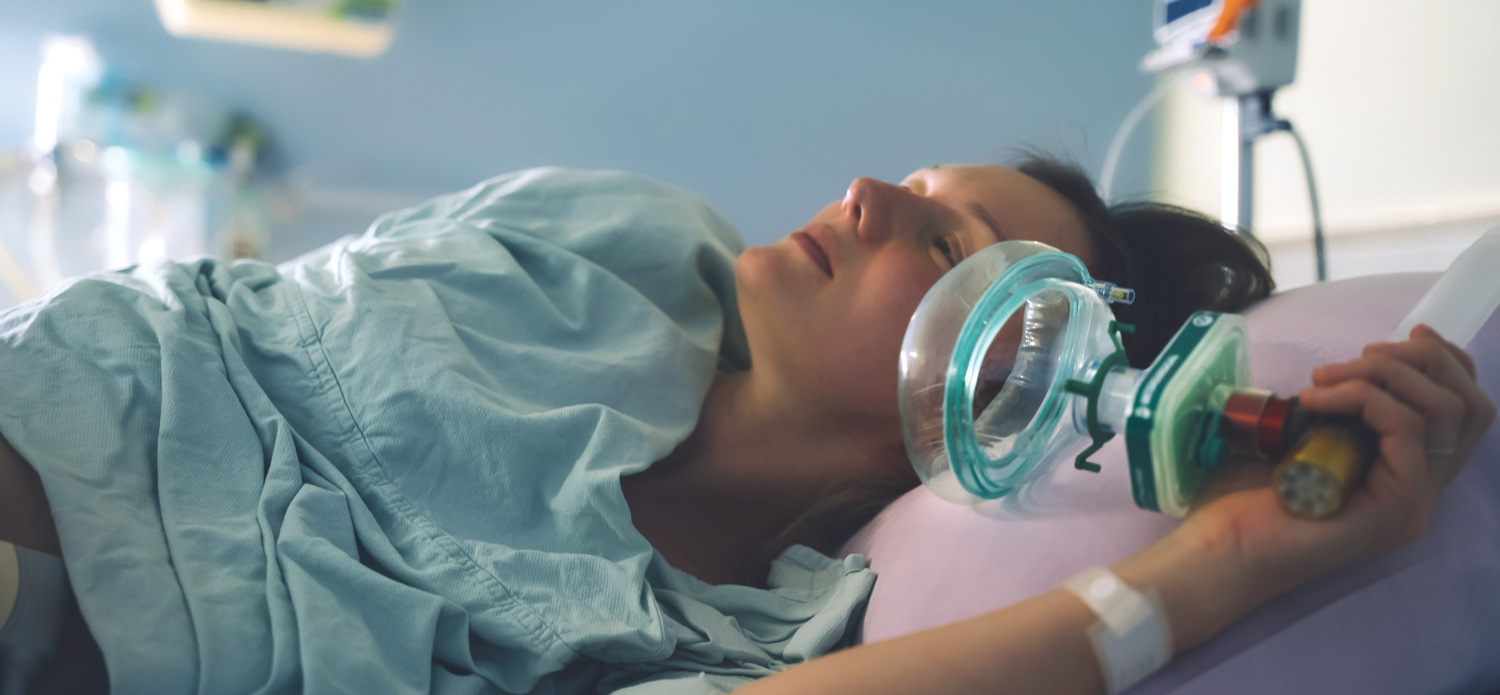 Out of gas
Out of gas
As the health system scrambles to reduce emissions, attention has turned to nitrous oxide in the labour suite. A study out of Adelaide is saying that birthing women denied nitrous oxide to relieve labour pain during the COVID-19 pandemic have turned to opioids instead, without any adverse outcomes for mother or child.
Anaesthetist Professor Bernd Froessler and colleagues compared patient notes for all 243 women birthing at Lyell McEwin Hospital over a seven-week period in March/April 2020, half of whom did not have access to N20.
They found that although opioid use “significantly increased” when N20 was withheld, there was no increase in epidural use and no change in labour duration, caesarean section rates, birthing complications or newborn alertness.
Nitrous oxide is used by more than 50% of Australian women to relieve pain in labour, followed by epidurals (nearly 40%) and opioids (12%), according to the AIHW. However, its carbon footprint (representing 6% of global gas emissions, with 1% due to health care) has led to a debate whether it should be replaced with other methods of pain relief.
However, principal midwifery officer at the Australian College of Midwives, Kellie Wilton, has hit back saying mothers should not be made to feel guilty about their pain relief choices and suggested hospitals could introduce nitrous oxide destruction systems to allow for its ongoing use.
When these systems were introduced in Swedish hospitals, the carbon footprint from the gas was halved.
Gene aid in treatment
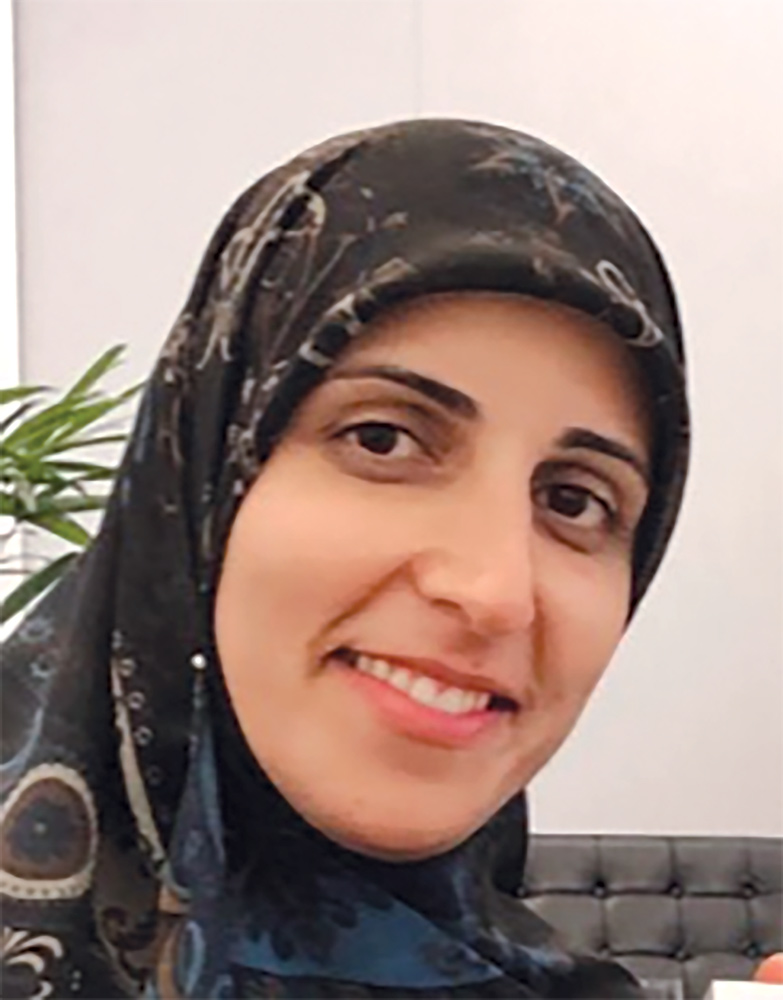
Oncologist and ECU researcher Dr Afaf Abed and her team have been examining the human leukocyte antigens (HLAs) of 179 non-small cell lung cancer patients and found a strong link between the genetic makeup of the HLAs and whether the person was likely to develop side effects from immunotherapy.
While immunotherapy has emerged as a major weapon in the battle against non-small cell lung cancer, which makes up 80-85% of all lung cancer diagnoses, it can also result in severe side effects for patients. At least 74% of those treated will experience immune-related adverse reactions and up to 21% of those will develop grade three or four toxicity, which can lead to lifelong complications affecting the skin, gut, liver or endocrine system.
Dr Abed said this discovery would benefit all non-small cell lung cancer patients, regardless of whether they were genetically predisposed to adverse reactions to immunotherapy or not.
“If someone is found to not be at risk of side effects, doctors can ramp up the treatment and be more aggressive in fighting the disease,” she said. “If they are found to be at a higher risk, doctors can take it easier, monitor and intervene before patients develop serious toxicity.”
The findings were published in the European Journal of Cancer.
Inhale relief
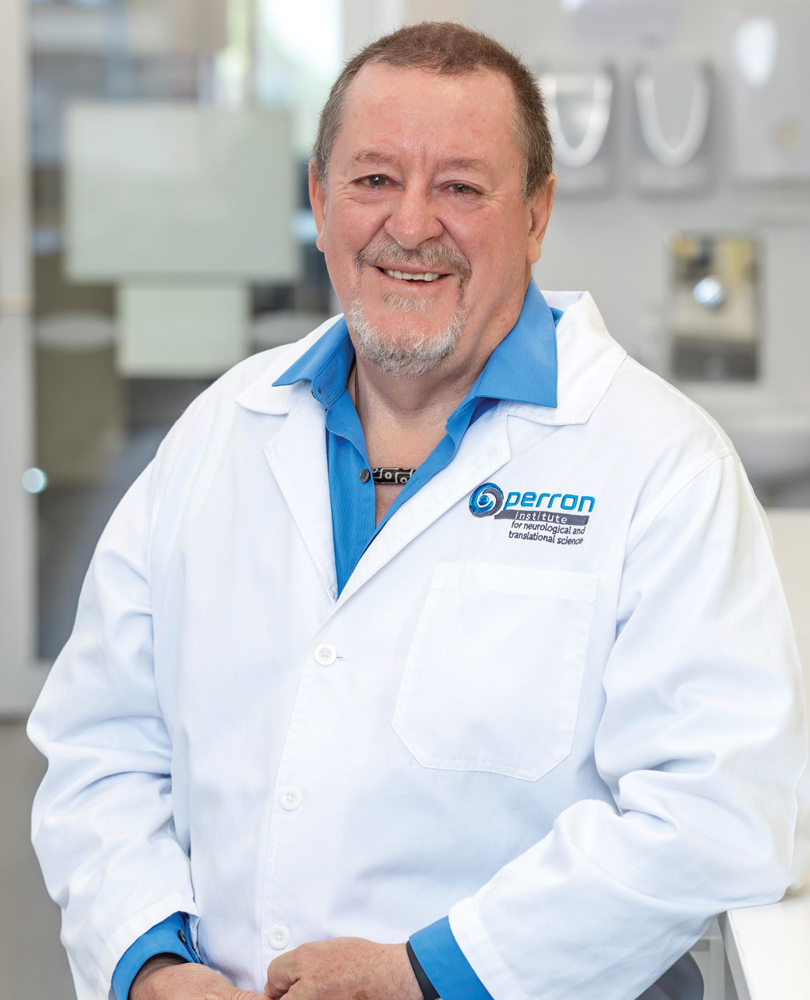
A $500,000 grant from mRNA Victoria has been awarded to Australian pharmaceutical start-up RAGE Biotech, which will be directed towards development of an inhaled RNA therapeutic for chronic lung inflammation.
Director of WA’s Perron Institute Professor Steve Wilton is a scientific co-founder of RAGE Biotech and he developed the lead compounds for the potential novel molecular therapy for inflammatory lung disease with Professor Merlin Thomas (RAGE Biotech Founder/Chief Scientific Officer and Monash University).
“The work is promising for chronic lung inflammation and a number of other respiratory disorders, and we look forward to further developments of anti-inflammatories,” Professor Wilton said.
ECU & WACHS unite
ECU and WA Country Health Service have signed a memorandum of understanding to develop interconnected regional clinical education, teaching, research and initiatives in the South West, including opportunities for internships, graduate employment and new course development.
ECU’s Professor Cobie Rudd said the partnership with WACHS was a natural fit. The collaboration has an overarching goal of advancing and enhancing education and training that will lead to significant employment and innovation opportunities in the South West.
Bunbury Regional Hospital Director Jeff Calver said WACHS was keen to work with ECU to facilitate student placements and support educational opportunities for students, which is anticipated to contribute to regional health workforces.
Bunbury Regional Hospital will be undergoing a $200 million redevelopment, while ECU Bunbury campus offers courses in nursing and midwifery, science, medical and health science, exercise science and paramedicine among others.
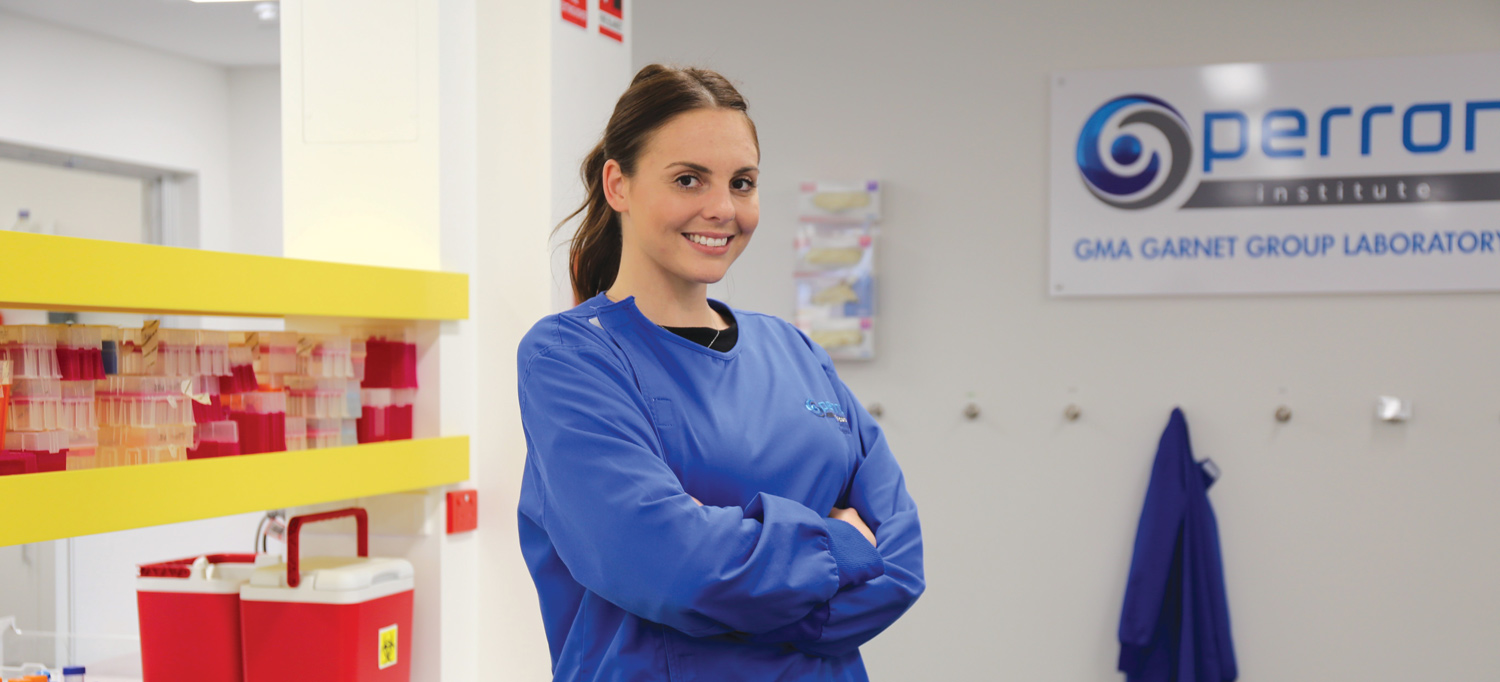
Fighting MND
Perron Institute and Murdoch University PhD student Frances (Frankie) Theunissen is a finalist in the 2022 Premier’s Science Awards in the Student Scientist of the Year category. Frances is a member of the Motor Neurone Disease Genetics and Therapeutics group at the Perron Institute, with lead Professor Anthony Akkari, and the Centre for Molecular Medicine and Innovative Therapeutics, Murdoch University.
Her work focuses on identifying genetic markers for sporadic MND, where there is no prior family history.
“Using these markers, we aim to group together patients who have similar underlying genetic mechanisms, allowing us to identify subgroups that may respond more favourably to certain therapies,” she said. “We hope this strategy will help us improve the outcomes of clinical trials for MND and inform the development of targeted treatments.”
 Say arrgh for science
Say arrgh for science
More than 1000 children are being sought for a study to learn more about sore throats and how best to prevent them. The STAMPS study, led by Australian Strep A Vaccine Initiative (ASAVI) partners – Murdoch Children’s Research Institute (MCRI) and the Telethon Kids Institute – are recruiting 1050 healthy children, aged 3-14 years, in Melbourne and Perth.
Murdoch Children’s project lead Professor Andrew Steer said the study would investigate how many children got sore throats, what was the most common cause and how they could change during different seasons of the year. The information collected will help inform how a vaccine could be used to prevent a wide range of illnesses caused by Strep A, including impetigo, septicaemia, rheumatic heart disease and kidney disease.
Strep A infections disproportionately affect young children, the elderly, pregnant women and Indigenous Australians. Rates of rheumatic heart disease among Indigenous populations in northern Australia are some of the highest in the world. There is currently no vaccine available to prevent Strep A and infection can only be treated with antibiotics.
ASAVI co-director, Telethon Kids Institute Director Professor Jonathan Carapetis, said a Strep A vaccine was urgently needed.
“A safe and effective Strep A vaccine is an important and practical solution for disease control, which will do so much to not only close the gap in Indigenous health in Australia but ease the burden of diseases caused by Strep A globally, particularly in developing countries,” he said.
Hi to HyCASA
Hollywood cardiothoracic surgeon Pragnesh Joshi and cardiac electrophysiologist Rukshen Weerasooriya are leading a team which will make Perth a training hub for the specialist heart procedure Hybrid Catheter Ablation and Surgical Ablation (HyCASA). It is considered the first in the Southern Hemisphere.
They are expecting to train 12 teams in the next 18 months and have started with clinicians from Peninsula Private Hospital and Monash Medical Centre in Melbourne.
HyCASA is a keyhole minimally invasive surgery performed on a beating heart. It is for patients with long-standing persistent atrial fibrillation (AF) and its aim is to interrupt the AF circuits and return the heart back to a normal rhythm. It combines endocardial radiofrequency ablation (which treats the inside of the heart) with epicardial ablation (which treats the outside of the heart).
Most patients considered for HyCASA have persistent AF or previous procedures have not been effective.
Prof Weerasooriya said a comprehensive HyCASA training program was important to provide AF patients with increased access to the procedure in Australia, New Zealand and the Asia Pacific.
You can read Prof Weerasooriya’s clinical column here.
Insight into Long-Covid
Griffith University researchers are hoping to find a treatment for Long-Covid after proving the illness shares the same biological impairment as patients with Chronic Fatigue Syndrome – known internationally as Myalgic Encephalomyelitis (ME/CFS). Their study suggests COVID-19 could be a potential trigger for ME/CFS and their 10 years of research on ME/CFS could help fast-track understanding and treatment of Long–Covid.
Director of Griffith University’s National Centre for Neuroimmunology and Emerging Diseases, Professor Sonya Marshall-Gradisnik, said researchers had pioneered a specialised technique known as electrophysiology or ‘patch-clamp’ in immune cells.
“This technique previously led the team to report on the pathology of ME/CFS and to examine specific ion channels in cells. Patients can experience different symptoms depending on which cells in the body are affected – from brain fog and muscle fatigue to possible organ failure,” she said.
Already, nearly 10 million cases of COVID have been reported in Australia and 5% are expected to be left with long-term illness. The findings will be published in Journal of Molecular Medicine.
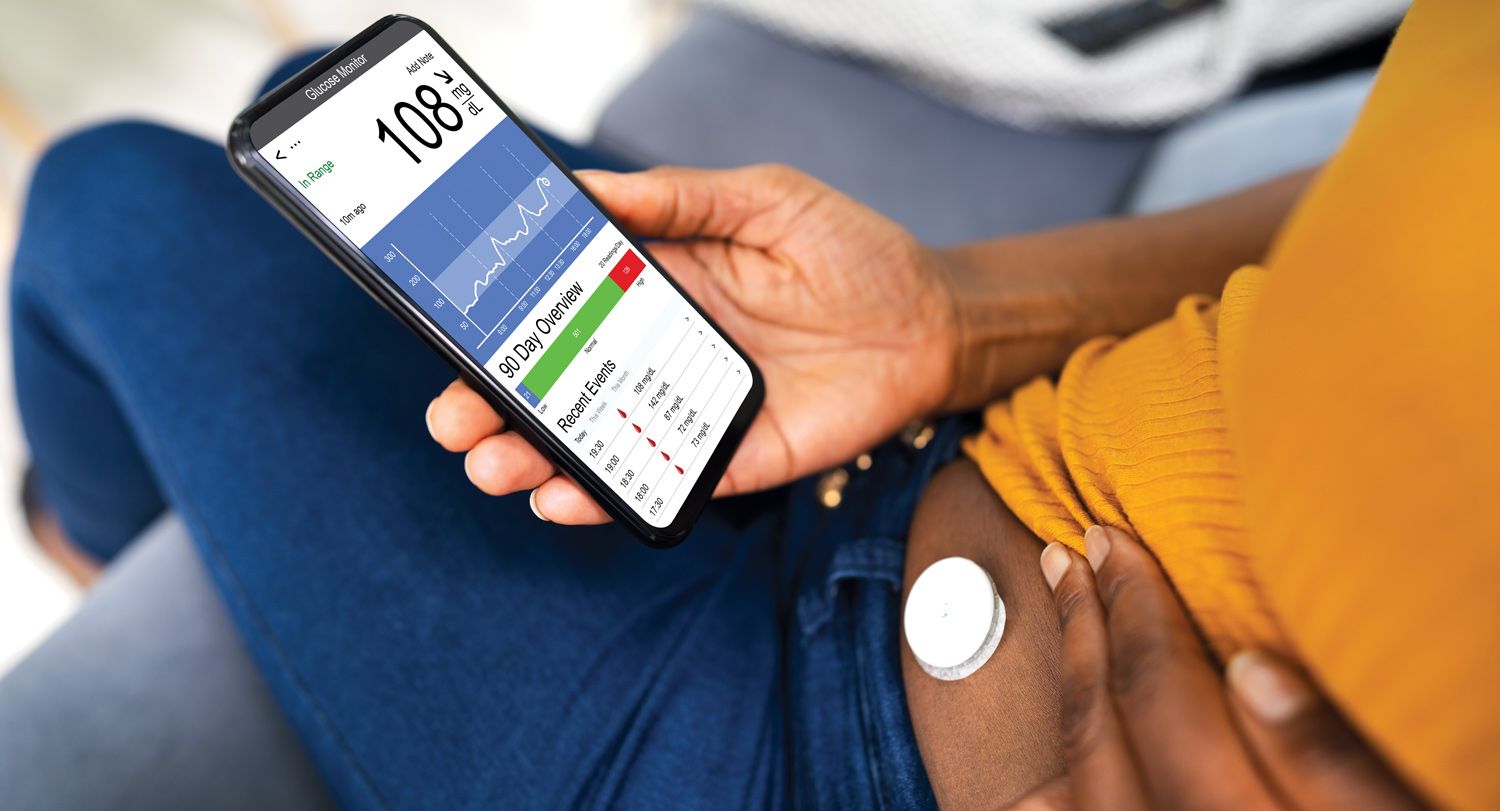 Cutting red tape
Cutting red tape
The RACGP has called on the Federal Department of Health to allow GPs to approve access to subsidised glucose monitors for their patients.
Not only is managing patients with type 1 diabetes within a specialist team well within the scope of GPs, it gave greater access for people with type 1 diabetes to essential monitoring and effective management of their condition, said college president Adj/Professor Karen Price.
“On 1 July this year, the government announced that access to subsidised continuous glucose monitoring and Flash GM products for patients with Type 1 Diabetes would be expanded via the National Diabetes Services Scheme (NDSS). However, the NDSS outlines that health professionals authorised to certify continuous and flash glucose monitoring access forms are those for whom diabetes is the main scope of their practice.
“There is no logical explanation why other members of a health-care team are authorised, but GPs are excluded. Not only is it insulting to GPs, it creates an unnecessary barrier to patient access for something that could make a real difference in managing their health.”
In another RACGP push, a petition has been raised to allow practice nurses to give flu jabs under the supervision of a GP in general practices. The petition urges the government to create a new MBS item number for this purpose, based on existing item 10988 (an immunisation provided to a person by an Aboriginal and Torres Strait Islander health practitioner).
“The government is very reluctant to fund anything under Medicare in general practice that doesn’t involve the GP doing it,” said one of the petition authors, NSW GP Professor Charlotte Hespe. She hopes to change that.

